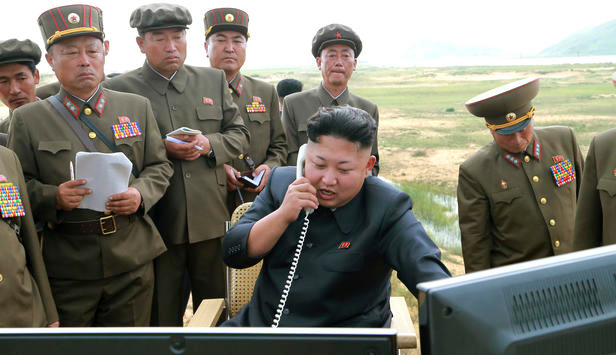 Parler
Parler Gab
Gab
- Mass layoffs at the State Department begin immediately, impacting upwards of 1,800 personnel.
- Trump allies aim to eliminate redundant functions, merging or closing over 300 bureaus and offices.
- The Supreme Court cleared the path for these firings after lifting a judicial block.
- Critics fear a loss of institutional expertise, particularly as global tensions rise.
- This purge is part of a broader plan to strip out up to 50,000 federal employees nationwide.
- Liberals who work in government offices fear that they will be next to the chopping block.
"Too large to function": The bureaucratic swamp
Tammy Bruce, a State Department spokeswoman, didn't mince words: "When something is too large to operate, too bureaucratic, to actually function… it has to change." This isn’t just a reorganization—it’s a demolition. The administration contends that decades of unchecked bureaucratic growth have stifled American interests, with overlapping offices and sluggish decision-making undermining true diplomatic agility. Congressional filings reveal an estimated 15% reduction of domestic State Department staff, targeting civil and foreign service roles. Offices handling everything from Afghanistan oversight to refugee resettlement are on the chopping block. And while critics lament the loss of institutional memory, supporters argue that trimming dead weight will increase efficiency, allowing a leaner, more responsive diplomatic corps to emerge.The "deep state" showdown
Trump has long railed against the deep state—the entrenched network of career bureaucrats resistant to presidential directives. His allies see these firings as a necessary correction, replacing ideological obstructionists with loyalists who prioritize America First policies. Already, Trump loyalists are drafting plans to replicate these cuts across the Justice Department, Pentagon, and FBI, reshaping federal agencies from the inside out. But opposition remains fierce. The American Foreign Service Association (AFSA) condemned the layoffs as a "catastrophic blow to national interests," arguing that skilled diplomats are being sacrificed for political expediency. Meanwhile, former Biden administration spokesman Ned Price blasted the firings on social media, calling them "haphazard" and reckless. Yet, Marco Rubio insists this isn't personal—just necessary. "Understand that some of these are positions that are being eliminated, not people," he clarified during a press briefing. But for those holding boxes as they exit State Department headquarters, the distinction may feel academic.What comes next?
This is only the beginning. The Supreme Court’s green light means the administration can extend layoffs to other agencies—potentially reaching 50,000 terminations. Already, the U.S. Agency for International Development (USAID) has been gutted, redirecting humanitarian aid through more controlled channels. As government employees are sent packing, some are asking whether artificial intelligence is making systems more efficient, allowing administrators to cut human employees, as if they are waste, substandard to AI advances. This will become more commonplace, especially in government, where people are wasting time just to fill sometimes worthless bureaucratic roles. Historical precedent suggests bureaucratic resistance will intensify. But Trump’s allies are prepared. The goal? A government that runs faster, cheaper, and more aligned with national interests—not career bureaucrats clinging to power. Whether this upheaval strengthens America or weakens its global standing remains to be seen. One thing is certain: the era of unchecked bureaucratic bloat is ending, and it will rapidly accelerate with the inclusion of AI into government systems. Sources include: TheNationalPulse.com Aljazeera.com NYPost.comTrade wars drive gold’s need for safety, yet dollar firmness caps the surge
By Willow Tohi // Share
California DEFIES Trump administration order to ban transgender athletes from girls’ sports
By Laura Harris // Share
From the eggs to the courts: A clash over animals, eggs and affordability
By Willow Tohi // Share
Trump open to “bone-crushing” Russia sanctions bill, but only on his terms
By Laura Harris // Share
Japanese research reveals critical timeline for covid vaccine-related deaths
By finnheartley // Share
Autopsy reveals lethal hydrogen peroxide concentration in wrongful death case
By finnheartley // Share










